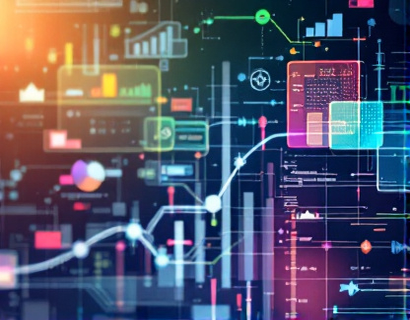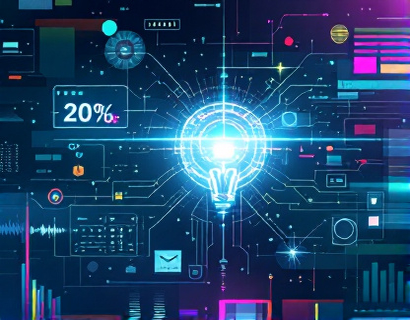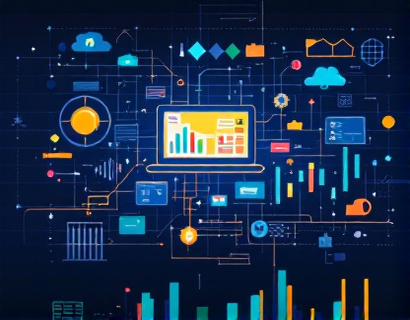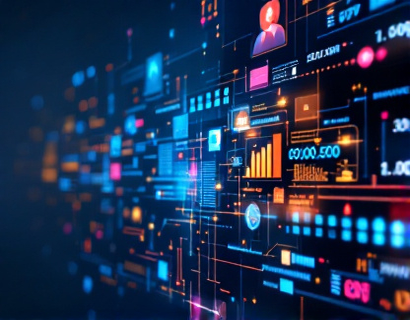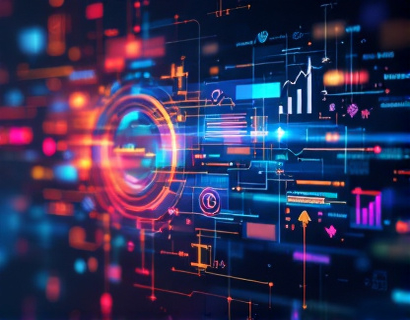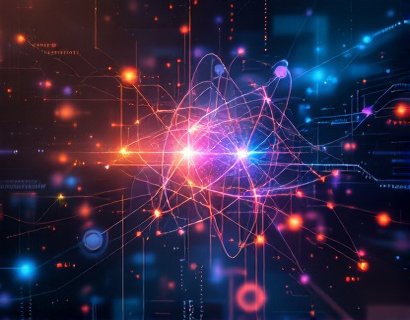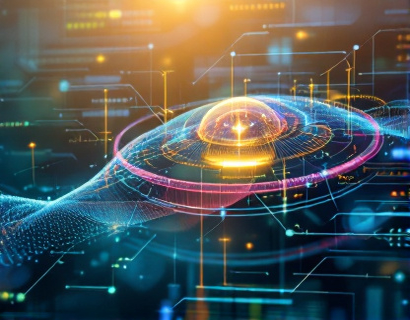Unleashing Enhanced Productivity in the Digital Age: The Synergy of AI and Cryptocurrency
The integration of Artificial Intelligence (AI) and cryptocurrency is revolutionizing the way we approach productivity in the digital realm. This synergy offers unprecedented opportunities for tech-savvy professionals and early adopters to enhance their workflow and task management. By leveraging the strengths of both technologies, individuals and organizations can achieve a smarter, more efficient digital future.
The foundation of this transformation lies in the unique capabilities of AI and cryptocurrency. AI brings advanced computational power, machine learning, and predictive analytics to the table, enabling systems to learn from data, adapt to new inputs, and perform tasks that traditionally required human intervention. Cryptocurrency, on the other hand, provides a decentralized, secure, and transparent medium for transactions, incentivizing participation and innovation.
Enhanced Workflow Automation
One of the most significant benefits of combining AI and cryptocurrency is the automation of workflows. AI-driven tools can analyze vast amounts of data to identify patterns and optimize processes. For instance, smart contracts on blockchain platforms can automate contract execution, payment processes, and compliance checks, reducing the need for intermediaries and minimizing errors. This not only speeds up transactions but also ensures greater accuracy and security.
Consider a scenario where a business uses AI to manage its supply chain. An AI system can predict demand, optimize inventory levels, and automate orders, all while ensuring that payments are securely handled through cryptocurrency. This seamless integration reduces manual overhead, lowers costs, and enhances overall efficiency.
Decentralized Task Management
Traditional task management tools often rely on centralized servers, which can be vulnerable to security breaches and downtime. By utilizing blockchain technology, task management platforms can offer a decentralized solution. Each task and its status can be recorded on a blockchain, ensuring transparency and immutability. AI can further enhance this by providing intelligent task assignments, prioritization, and reminders based on real-time data and user preferences.
For example, a decentralized task management platform could use AI to analyze a team's performance and suggest optimal task distributions. Smart contracts can then enforce these assignments, ensuring that deadlines are met and payments are automatically processed through cryptocurrency. This not only streamlines the workflow but also builds trust among team members by providing a transparent and fair system.
Incentivization through Cryptocurrency
Cryptocurrency plays a crucial role in incentivizing participation and rewarding productivity. In a decentralized ecosystem, tokens can be used to reward users for completing tasks, contributing to the network, or achieving specific milestones. This gamification of work not only boosts motivation but also aligns individual goals with the overall success of the organization.
AI can optimize the incentivization process by analyzing user behavior and preferences to determine the most effective reward structures. For instance, AI might identify that certain types of tasks or achievements are more motivating for specific individuals, allowing for personalized incentives that maximize engagement and productivity.
Secure and Transparent Data Management
Data security and privacy are paramount in today's digital landscape. The combination of AI and cryptocurrency offers robust solutions for secure data management. Blockchain's inherent security features, such as cryptographic hashing and consensus mechanisms, ensure that data is tamper-proof and resilient against attacks. AI can further enhance security by detecting and mitigating potential threats in real-time.
AI-driven analytics can monitor data access patterns and identify anomalies that may indicate a security breach. This proactive approach allows organizations to respond quickly to threats, minimizing potential damage. Additionally, AI can help in managing access controls, ensuring that only authorized users can access sensitive information.
Cryptocurrency adds an extra layer of security through its decentralized nature. Transactions and data storage are distributed across a network of nodes, making it extremely difficult for any single entity to manipulate the system. This decentralization, combined with AI-powered security measures, creates a highly secure environment for data management.
Predictive Analytics and Decision Making
AI's ability to process and analyze large datasets makes it an invaluable tool for predictive analytics. By leveraging historical data and machine learning algorithms, AI can forecast trends, identify opportunities, and inform strategic decisions. In a business context, this can lead to more informed and data-driven decision-making, ultimately driving growth and efficiency.
When integrated with cryptocurrency, predictive analytics can also optimize financial decisions. For example, AI can analyze market trends and cryptocurrency price movements to provide insights for investment strategies. Smart contracts can then automate trades based on predefined criteria, executing transactions at optimal times to maximize returns.
AI-driven predictive models can also help in risk assessment and management. By identifying potential risks and their likelihood, organizations can take proactive measures to mitigate them. This is particularly useful in the volatile world of cryptocurrency, where market fluctuations can have significant impacts.
User-Centric Personalization
Personalization is key to enhancing user experience in the digital age. AI can analyze user behavior, preferences, and performance data to create tailored experiences that boost productivity and satisfaction. In the context of AI and cryptocurrency, this personalization can extend to financial management and investment strategies.
For instance, an AI-powered financial advisor can use machine learning to understand an individual's financial goals, risk tolerance, and investment history. Based on this analysis, the advisor can recommend customized investment portfolios that include cryptocurrency assets. Smart contracts can then automate the execution of these investments, ensuring that the user's strategy is followed consistently and efficiently.
Moreover, AI can provide real-time feedback and adjustments to investment strategies, adapting to market changes and user preferences. This level of personalization not only enhances the user experience but also increases the likelihood of achieving financial objectives.
Challenges and Considerations
While the synergy of AI and cryptocurrency offers numerous benefits, it also presents several challenges that must be addressed. One of the primary concerns is the regulatory landscape. The decentralized nature of cryptocurrency and the complex algorithms of AI can complicate compliance with existing laws and regulations. Organizations must stay informed about regulatory changes and ensure that their solutions adhere to legal requirements.
Another challenge is the technical complexity involved in integrating AI and cryptocurrency systems. Developing robust, scalable, and secure solutions requires expertise in both domains. Collaboration between AI researchers, blockchain developers, and cybersecurity experts is essential to overcome these technical hurdles.
Additionally, there is a need for education and awareness among users. Many individuals and organizations are still unfamiliar with the potential of AI and cryptocurrency. Providing accessible resources and training can help bridge this knowledge gap and foster wider adoption.
Future Prospects
The future of AI and cryptocurrency integration holds immense potential. As technology continues to advance, we can expect more sophisticated and seamless integrations that further enhance productivity and efficiency. Here are some key areas to watch:
- Enhanced Interoperability: Standardization efforts will likely lead to better interoperability between different AI and blockchain platforms, making it easier for users to integrate and utilize multiple services.
- Quantum Computing: The emergence of quantum computing could significantly boost AI capabilities, enabling more complex computations and faster data processing. This could lead to breakthroughs in areas such as cryptography and predictive analytics.
- Decentralized AI: The concept of decentralized AI, where AI models are trained and run on a distributed network, can enhance privacy and reduce the risk of data breaches. This approach can also make AI more accessible and democratic.
- Sustainable Cryptocurrencies: As environmental concerns grow, the development of more energy-efficient cryptocurrencies will become increasingly important. Combining AI with sustainable crypto solutions can contribute to a greener digital future.
In conclusion, the combination of AI and cryptocurrency is poised to transform productivity in the digital age. By automating workflows, providing decentralized task management, incentivizing participation, ensuring secure data management, and offering predictive analytics, this synergy offers a comprehensive solution for tech-savvy professionals and early adopters. As the technology evolves, the possibilities for innovation and efficiency will continue to expand, paving the way for a smarter and more efficient digital landscape.





